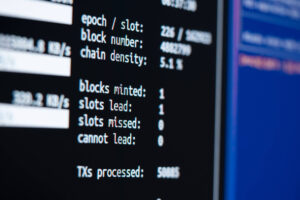A cypherpunk is a person who advocates the widespread use of strong cryptography and privacy-enhancing technologies to achieve personal freedom, privacy and security in the digital age.
The term "cypherpunk" is a combination of "cypher", which refers to encryption, and "punk", which indicates a rebellious and countercultural attitude. Cypherpunks emerged in the late 1980s and gained prominence in the 1990s as the internet became more ubiquitous and concerns about digital surveillance and invasion of privacy grew. These individuals are generally proponents of a decentralized, anonymous and private digital world. They believe that each individual should have self-determined control over their own data and communications without interference from governments, corporations or other centralized bodies.
The most important principles of the Cypherpunks
- Strong cryptography: Cypherpunks emphasize the importance of robust encryption techniques to secure communications, transactions and data. They believe that encrypted communications and transactions can protect personal information from unauthorized access and mass surveillance.
- Privacy: Cypherpunks advocate the protection of individual privacy in the digital world. They are critical of general surveillance, data collection and tracking by companies and governments.
- Decentralization: Cypherpunks value decentralization as a means of preventing the concentration of power. They support technologies that allow individuals to interact directly with each other without relying on intermediaries.
- Anonymity: Anonymity is an important tenet of the Cypherpunk philosophy. They believe that individuals should be able to communicate and act without revealing their true identity in order to protect their freedom of expression and personal safety.
- Freedom of information: Cypherpunks advocate the unhindered flow of information and knowledge. They reject censorship and restrictions on access to information.
- Individual empowerment: Cypherpunks seek to empower individuals by giving them self-determined control over their digital lives. This includes control over personal data, online identities and communication channels.
- Crypto-anarchy: Some cypherpunks advocate the concept of crypto-anarchy, which envisions a society in which cryptographic tools and decentralized technologies replace traditional hierarchical power structures. This idea has sparked debates and discussions about the potential social impact of such a change.
Cypherpunks have been instrumental in the development and promotion of technologies such as public key cryptography, digital signatures, anonymous remailers and cryptocurrencies such as Bitcoin. They have played a role in raising awareness of digital privacy issues and advocating for tools that empower user autonomy in the digital world.









